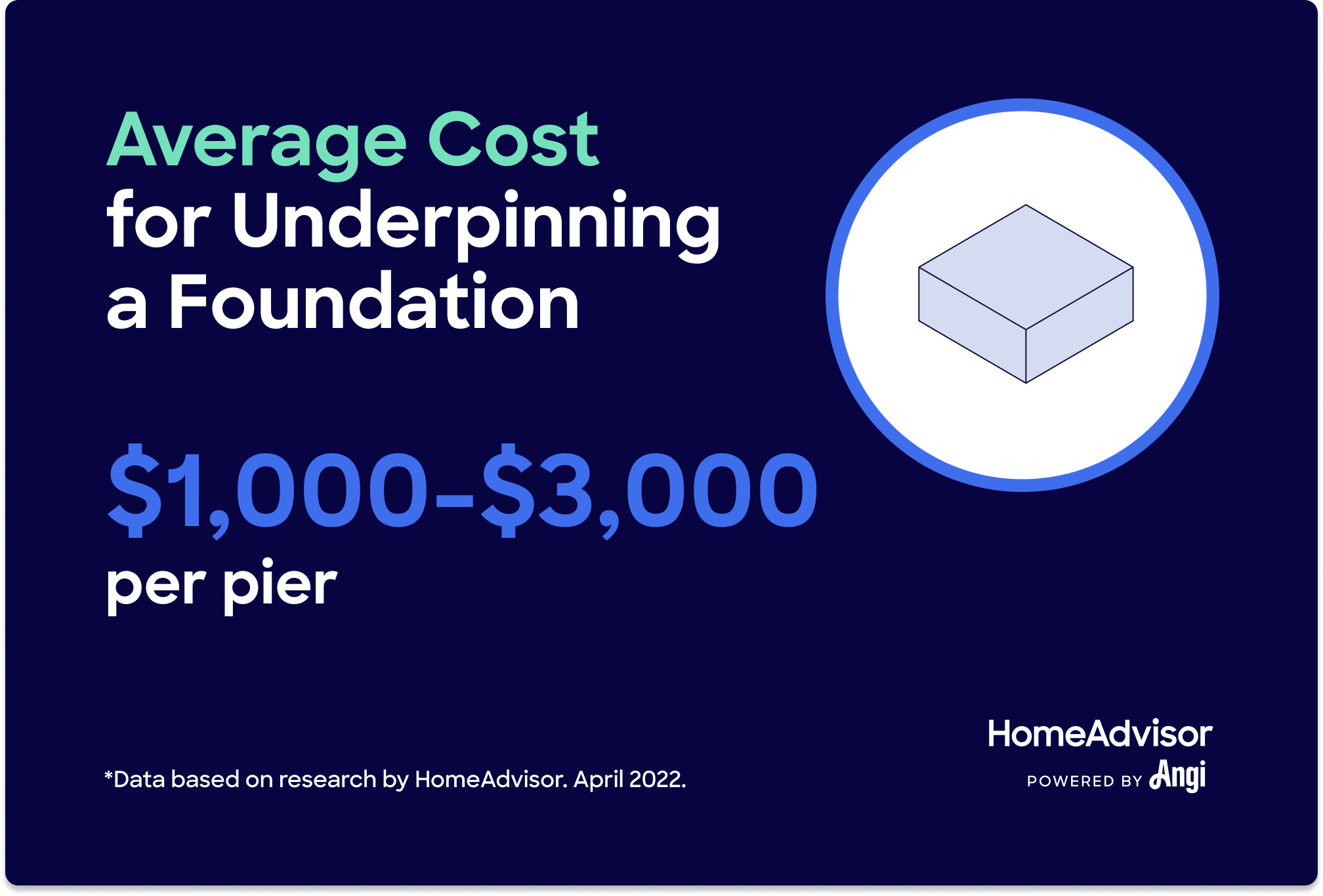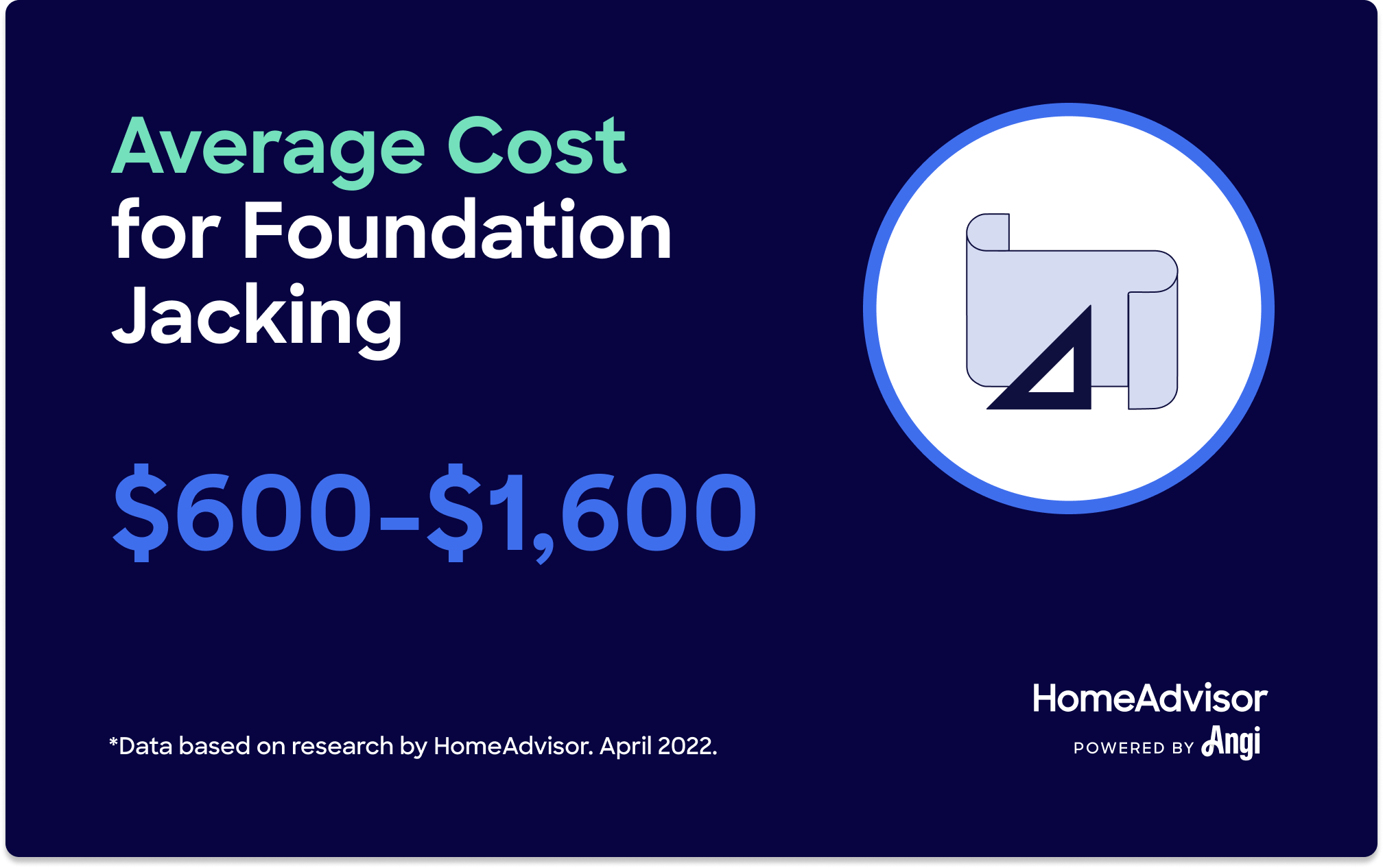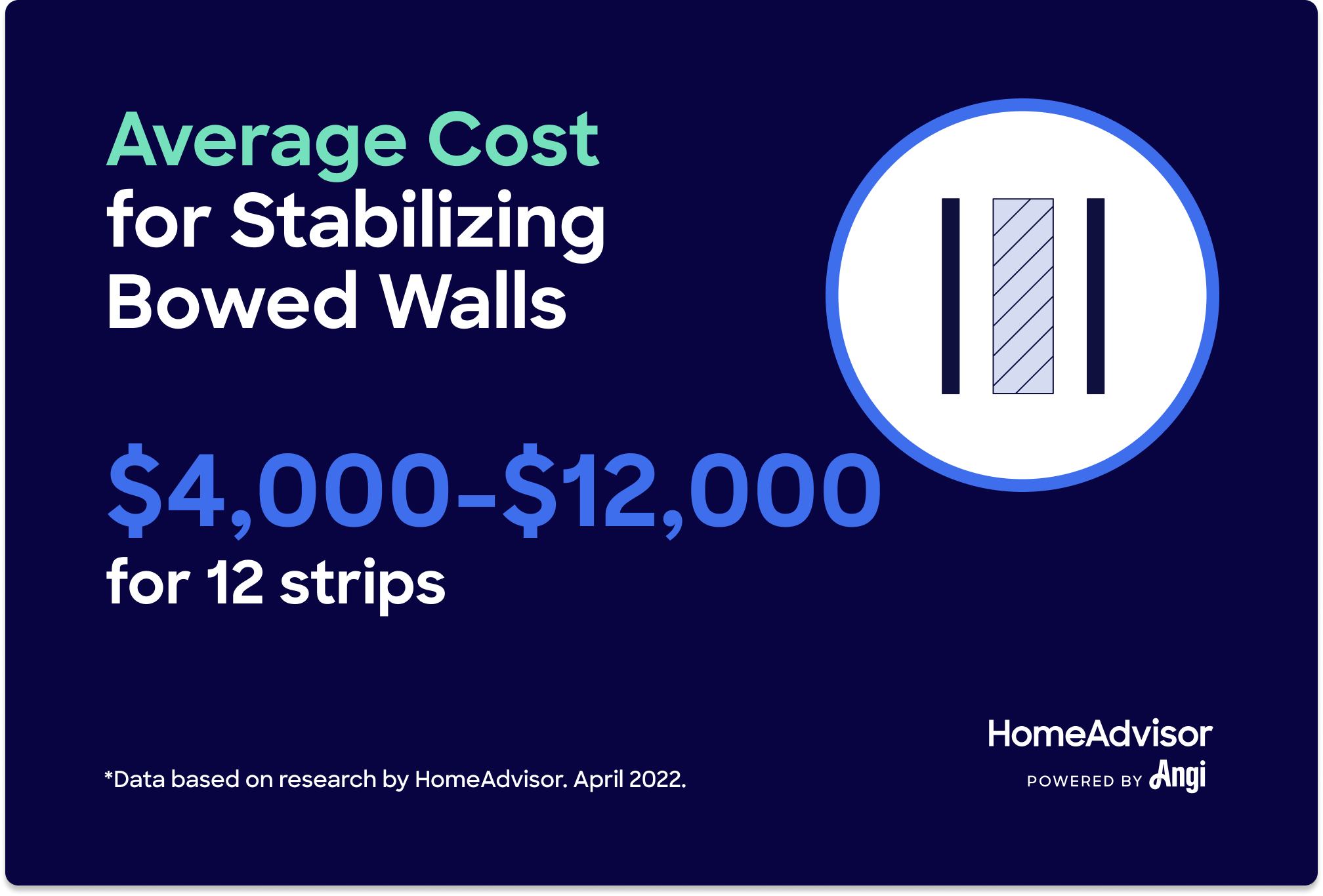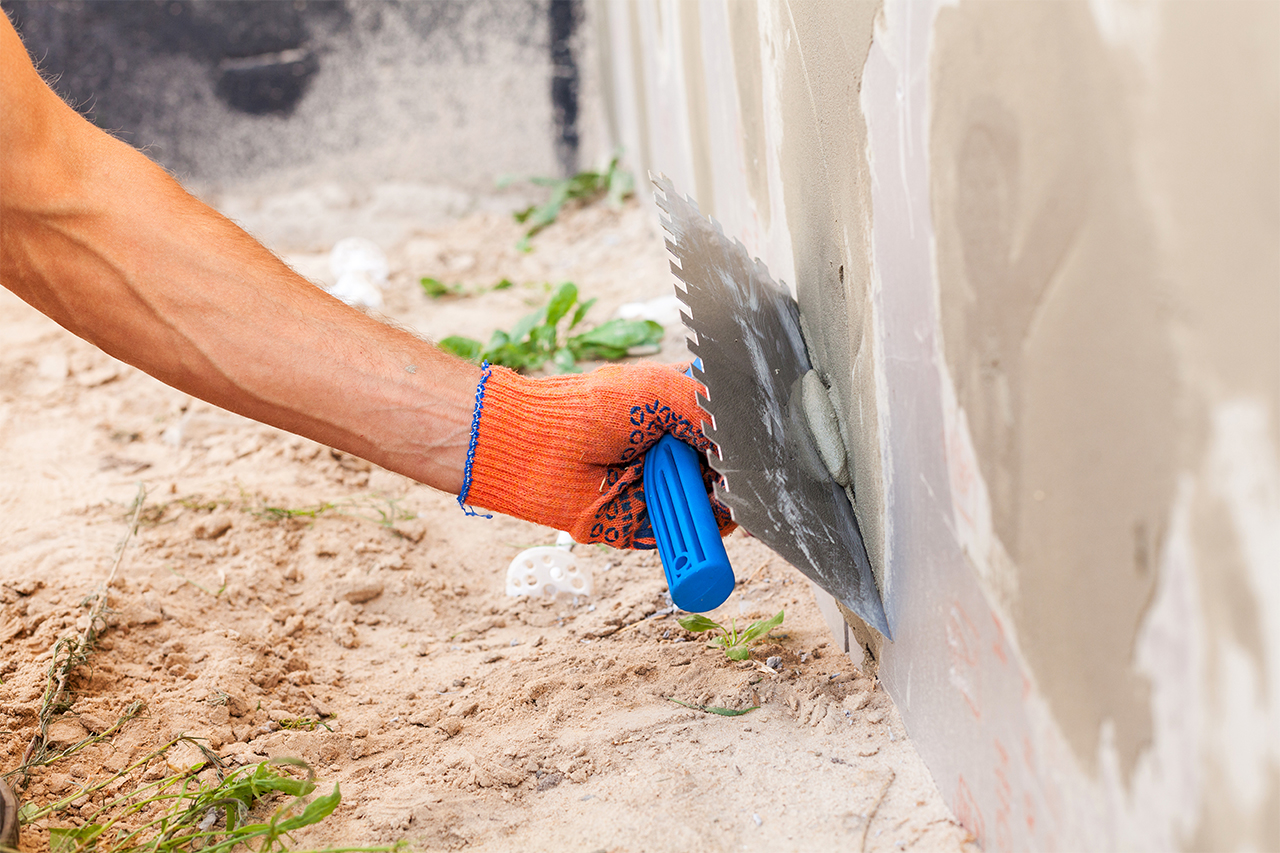How Much Does It Cost to Repair a Foundation?
Typical Range:
$2,190 - $7,902
Typical Range:
$2,190 - $7,902
Cost data is based on actual project costs as reported by 4,084 HomeAdvisor members. Embed this data
.
.
.
.
.
.
.
.
.
.
.
.
.
.
.
.
.
.
.
.
.
.
.
.
.
.
.
.
.
.
•
•
•
•
Updated May 19, 2022
Reviewed by Cati O'Keefe, Expert Home Building & Sustainability Contributor.Most homeowners will pay around $5,046 to repair foundation issues. Major repairs involving hydraulic piers can cost $10,000 or more, and minor cracks cost as low as $500. The typical homeowner pays between $2,190 and $7,902.
Foundation settlement and cracking can lead to major structural problems for your home. You can repair many of these issues without tearing it out and starting from scratch. It can be a costly job, but the better educated you are about types of foundations, common issues, and how best to fix them, the better you can work with your contractor to find a solution you can afford.
Let's calculate cost data for you. Where are you located?
Where are you located?
| National Average | $5,046 |
| Typical Range | $2,190 - $7,902 |
| Low End - High End | $500 - $15,500 |
Cost data is based on actual project costs as reported by 4,084 HomeAdvisor members.
Foundation repairs range in cost based on the nature of the repair needed, the extent of the damage that’s already occured, and factors like square footage and your location. Damaged foundations that are not repaired quickly can lead to irreparable damage and an unsafe structure that could be condemned. The longer you wait, the worse the damage can get, and the costlier it will be to fix.
| Repair Type | Cost Range |
|---|---|
| Cracking repair | $250 – $800 |
| Leaking repair | $2,300 – $7,300 |
| Settling or sinking repair | $600 – $3000 |
| Bowing walls repair | $4,000 – $12,000 |
Crack repairs will run you between $250 and $800. Cracks wider than 1/8" are cause for concern. At this point, you probably have a structural problem and should consult a structural engineer about your options. It could be that your foundation is sinking or the soil is exerting too much pressure on it.
Cracks that do not affect the structure can be fixed easily. However, they should not be ignored because they are throughways for moisture and could lead to structural problems if left alone. This fix will involve injecting either epoxy or polyurethane foam. If it's wet and leaking, waterproofing will be necessary.
Fixing foundation leaks costs $2,300 to $7,300. A leak or two can signal a huge problem with drainage and moisture around your home. To fix this issue, you will want to consult a professional about various waterproofing techniques that can better secure the structure. They will probably recommend sealing your foundation.
To do this, contractors excavate around your foundation, install new tile drains and fill the cracks with cement. They will also coat the structure in sealant and wrap it in a waterproof material. The cost of this repair involves labor, time, and equipment, but it will be worth it to have a stable home.
Contractors can restore the structure to its original height by raising it up and securing it with piers for $1,000 to $3,000 per unit or mudjacking which costs $600 to $1,600.
House settling and sinking are major issues that demand immediate attention and require the foundation to be leveled. Sinking and settling are often caused by issues with soil or moisture which will need to be corrected prior to the repair. Hiring a professional with expertise in evaluating soil and moisture issues before you begin your repair will add to your total cost but ensure that the job gets done properly.
Bowing basement walls can be fixed by using carbon fiber or steel reinforcement strips for $4,000 to $12,000. This type of damage is a sign of poor soil conditions caused by expansive clay, weak fill or insufficient drainage. You want to catch this right away because it lowers your home value and can cause your house to settle. You'll also need to assess the soil to solve the initial problem.
Foundation repairs average about $4,700. Identifying the problem is the first step. Slabjacking a sinking foundation back into place may be all you need to do. Or, you may need to invest in the installation of steel support beams. Your contractor and structural engineer will play an important role in ensuring that you choose the right repair.
Underpinning your basement costs $1,000 to $3,000 per pier. This is, in most cases, a more expensive repair method as it requires you to pay the cost of raising the foundation, excavation, and the installation of hydraulic piers. However, when the installation is performed by certified professionals, it is considered a permanent solution that will not be compromised by further settling of the house or shifting of the earth.
Also known as underpinning, this involves installing piers underground, which lift and support the concrete. For this method, the foundation professional will need to dig many feet into the ground. The pier is then placed under your foundation and raised with hydraulics to lift it back into place and stabilize it. This method requires the use of multiple piers placed at different points.
The average price paid for foundation jacking falls between $600 and $1,600. The process is also known as mudjacking or slabjacking. A professional pumps a grout mixture into the space under the concrete foundation and floats the foundation back to its original position.
This method is affordable and doesn't demand as much equipment or excavation. However, it is not the right solution for every foundation type. A professional will be able to assess which repair method is best suited for your particular issue. Slabjacking, although effective, could be rendered ineffective if there were any structural shifts to your home or the soil surrounding it.
Stabilizing foundation walls costs $4,000 to $12,000 for 12 strips of reinforcement. Your contractor can use two materials to stabilize the walls: carbon fiber and steel.
Carbon fiber:
A good choice if you have minimal bowing in your walls
Less expensive than steel
Steel:
A good choice if the bowing in your walls is more significant
More expensive than carbon fiber
"Don't underestimate the importance of grading your property correctly so water runs away from your house. An inexpensive job can solve minor water issues. In addition, don't allow excessive mulch or plantings to hold water against your foundation. Consult a professional landscaper for guidance."
Cati O'Keefe, Expert Home Building & Sustainability Contributor.
Foundation sealing costs between $2,300 and $7,300. As mentioned above, sealing is a waterproofing solution to combat moisture and drainage issues. There are many facets to this process, and you don't necessarily need every service done.
Get an inspection from a structural engineer to find out the extent of your repair needs, so that you don't pay for unnecessary services. For example, applying sealant and installing a waterproof barrier may be all you need to do. If you have poor drainage, you'll need to make improvements in that area too.
The type of foundation you have will narrow your repair options and can play a part in determining cost. Basements, for example, will require more extensive excavation than concrete slabs. Homes with crawl spaces or pier and beam structures will likely be easier to access and repair.
Settling slabs can usually be fixed through mudjacking and sealing. However, you might need a different type of supporting structure. Slabs work best in environments where the soil doesn't shift much. A structural engineer or soil specialist may recommend a deeper, more secure foundation. If you need a new one built, you'll be paying to have the house raised and the slab removed.
These may settle, bow and crack. If moisture is causing significant deterioration under your home, a professional may insulate and ventilate the area. If the supports are shifting in the soil and causing the house to sink, you can install adjustable joists in their place to accommodate soil change and level the structure.
Cracking and leaking are major issues and can eventually lead to bowing. Cracks run vertically, horizontally, or in steps along their joints. Horizontal cracks can be devastating for home stability. They will need to be filled, and drainage issues will need to be addressed. It is important to stabilize the foundation as soon as possible, using carbon fiber or steel reinforcements, as suggested by your contractor.
With a basement, you are likely to see the highest repair costs and the greatest variety of issues. Basements can sink, settle, crack, leak and bow. Often, one of these problems will quickly lead to another, if you don't fix it fast enough. In most cases, you will need to improve waterproofing, which could require extensive excavation to get to the exterior. You will also have more surface area to seal. If a wall or walls are bowing, you may have to pay for reinforcements as well.
Pier and beam issues are most often due to wood decay and settling, which signals shifting soil or moisture issues. To combat this issue you may need to adapt your current drainage system through grading or the installation of a new drain system. If indicated, you may find that the cost of installing a sump pump is worth it. You’ll also likely need to replace your beams with steel or add more piers to the underpinning system.
If you have foundation issues, it is worth the extra foundation inspection report fees, ranging from $350 to $725 to address the problem. An engineer has no vested interest in selling you a solution to your problem, so you are more likely to get an unbiased opinion.
If you consult a repair professional, they may want to sell you the method that is easy for them or a high-dollar fix rather than what is right for you. It is better to go to a pro with your structural report in hand and ask them the cost of doing the necessary repair.
Often, homeowners don’t realize that they have foundation issues until they notice signs like cracks, leaks, and sloping or uneven floors and walls. Other commons signs of foundation issues include:
Doors or windows that stick
A sloping floor
Basement leaks
Cracking in the floors or walls
Cracking in the exterior foundation
Gapping around doors and windows
You must disclose any work that you have had done on your foundation when it is listed for sale, but if you have had your home stabilized or piered, that could be seen as an asset rather than a drawback. In areas known to have expansive clay or soil issues, having hydraulic piers installed is a solution to a problem that every homeowner in the area expects to encounter at one time or another. Fixing stability problems is a necessary investment if you want your home to perform well in the market.
Foundation inspections should be conducted by a qualified structural engineer. Over the course of their inspection they will:
Conduct a floor elevation survey
Inspect the interior and exterior of your home
Observe whether wall or doors are level or leaning
Analyze why flooring is uneven
Check for poor grading, standing water, and erosion or sinking soil



